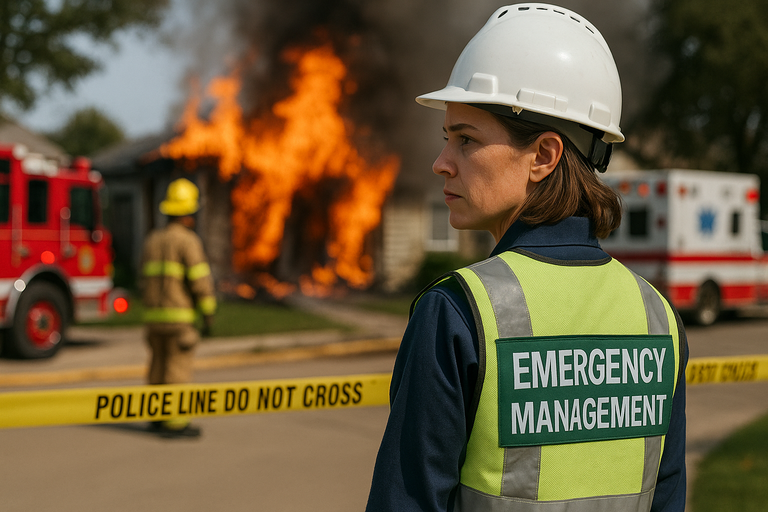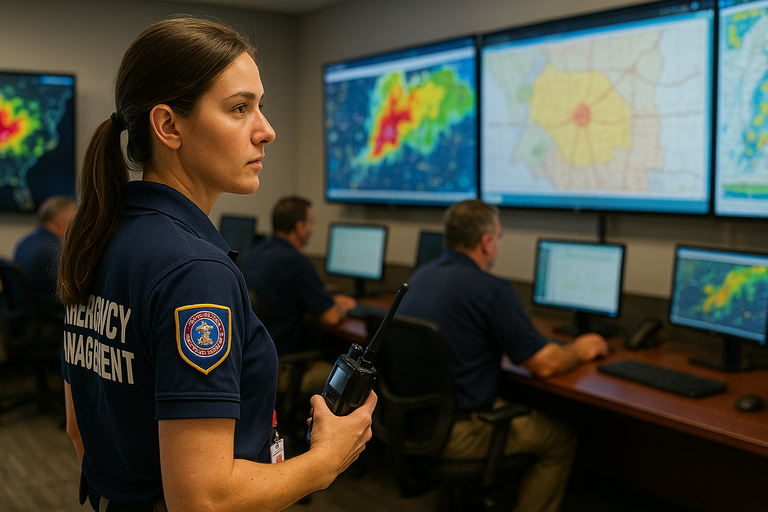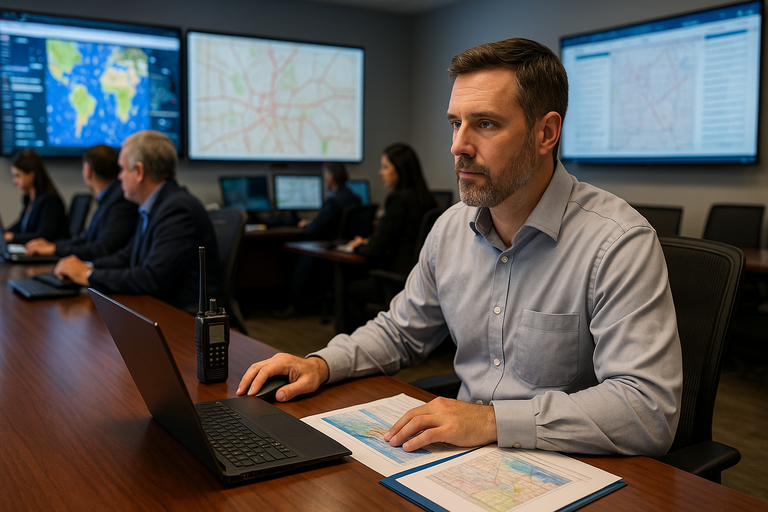When disaster strikes—whether it’s a hurricane, wildfire, cyberattack, or pandemic—there are professionals working behind the scenes to keep people safe, informed, and protected. These careers are known as emergency preparedness jobs, and they are more essential now than ever before. From government agencies and healthcare institutions to private corporations and NGOs, the demand for qualified individuals in this field continues to grow.
Pursuing a career in emergency management isn’t just about responding to crises. It’s about planning, coordinating, educating, and building resilient systems that can prevent catastrophe or reduce its impact. As the climate changes and global threats become more complex, emergency preparedness jobs are rapidly becoming a cornerstone of public safety and national security.
Why Emergency Preparedness Jobs Are Growing in Demand
Over the past decade, the world has witnessed an increase in both natural and human-made disasters. From massive storms and wildfires to global pandemics and infrastructure breakdowns, the need for trained professionals in preparedness and response has become clear. That’s why emergency preparedness jobs are now among the most vital and stable career paths in public service.
These roles are no longer limited to firefighters or paramedics. The modern emergency response system includes analysts, planners, logistics coordinators, communication experts, and even cybersecurity professionals. As threats evolve, so does the workforce behind disaster readiness and recovery.

Key Sectors That Offer
Not all jobs in this field are created equal. Depending on your interests, skills, and education level, there are many different career paths to explore. Some of the most common sectors hiring for emergency preparedness jobs include:
- Government agencies: FEMA, CDC, DHS, and local emergency management offices
- Healthcare systems: Hospitals and public health departments employ disaster planners
- Education institutions: Schools and universities need crisis response coordinators
- Nonprofits and NGOs: Organizations like the Red Cross offer both field and planning roles
- Private sector: Corporations need continuity planners and risk analysts for business survival
Whether you’re drawn to field response or behind-the-scenes logistics, there’s a niche for nearly every personality type.
Job Titles Commonly Found
While the umbrella term is broad, emergency preparedness jobs span a range of specialized roles. Depending on the employer and setting, you may see job titles such as:
- Emergency Management Specialist
- Disaster Recovery Coordinator
- Crisis Communication Officer
- Business Continuity Planner
- Hazard Mitigation Analyst
- Emergency Services Director
- Public Health Emergency Planner
- Cyber Incident Response Coordinator
These roles differ in scope and responsibility, but all share a common goal: minimizing harm and restoring order during a crisis.

What You Need to Qualify for Emergency Preparedness Jobs
The field is multidisciplinary, meaning your background in healthcare, logistics, engineering, or public safety can all be relevant. However, most emergency preparedness jobs require a mix of education, certifications, and real-world experience.
Education
- A Bachelor’s degree in Emergency Management, Public Health, Homeland Security, or related fields is often the minimum requirement.
- A Master’s degree in Emergency Management or Public Administration can open doors to leadership positions.
Certifications
Many employers prefer or require certifications such as:
- Certified Emergency Manager (CEM)
- Associate Emergency Manager (AEM)
- FEMA Independent Study Program completion
- ICS (Incident Command System) training
Certifications help demonstrate your commitment and preparedness for high-stakes roles.
Skills Required
Soft skills and technical knowledge are equally important in this field. Employers typically look for professionals who are:
- Calm under pressure
- Excellent communicators
- Strategic thinkers
- Strong in logistics and planning
- Familiar with emergency software and data systems
- Able to collaborate across multiple agencies
Your ability to lead during high-stress scenarios can often matter more than your technical credentials.
Salaries and Career Outlook for Emergency Preparedness Professionals
While salaries vary based on location, role, and experience, most emergency preparedness jobs offer competitive pay and benefits. According to the U.S. Bureau of Labor Statistics, emergency management directors earn a median salary of around $79,000–$110,000 per year. Entry-level coordinators or specialists may start at $50,000–$65,000.
Beyond salary, many professionals are drawn to the field because of its job stability and societal impact. As disasters increase in frequency and complexity, emergency preparedness is seen as a growth sector across both the public and private sectors.

Emergency Preparedness Jobs in Healthcare Systems
One of the fastest-growing subfields is in healthcare. Hospitals, clinics, and long-term care facilities rely on disaster planners to prepare for:
- Disease outbreaks and pandemics
- Mass casualty incidents
- Evacuations and shelter-in-place orders
- Cybersecurity breaches affecting patient records
Emergency planners in healthcare not only write protocols and run simulations but also work closely with public health departments and emergency responders. These emergency preparedness jobs are ideal for professionals with a background in medicine, nursing, or health administration.
A Look at Entry-Level
Starting your career doesn’t require years of experience if you know where to look. Entry-level emergency preparedness jobs may include:
- Emergency Management Assistant
- Planning Intern or Specialist
- Community Outreach Coordinator
- Preparedness Trainer
- Risk Assessment Technician
These roles often focus on administrative tasks, data entry, and public education—but they provide critical exposure to how response systems work in real-time.
The Role of Technology in Modern Emergency Preparedness Jobs
Today’s professionals rely on more than radios and paper maps. Modern emergency preparedness jobs integrate a wide range of technologies:
- GIS mapping systems for real-time disaster tracking
- Emergency notification systems for public alerts
- Data dashboards for situational awareness
- Cloud-based response platforms for coordination
- Social media monitoring tools for public sentiment analysis
The increasing role of tech means that people with backgrounds in IT, data science, and cybersecurity have new opportunities in the preparedness field.

How to Start Your Career
If you’re interested in breaking into this dynamic field, here are steps to guide your journey:
- Earn a degree or take related courses in emergency management, homeland security, or public health
- Get certified—many programs offer affordable online certifications
- Volunteer with local disaster relief or community emergency response teams (CERT)
- Apply for internships or entry-level roles to gain field experience
- Network at conferences, webinars, and LinkedIn groups dedicated to emergency planning
Persistence and continuous learning are key to building a long-term career in this space.
Final Thoughts on Building a Career in Emergency Preparedness Jobs
Emergency preparedness is about more than just reacting to chaos—it’s about planning ahead to minimize it. Choosing a career in this space means dedicating your life to protecting others, solving problems, and creating systems that work when everything else is failing. The best emergency preparedness jobs challenge you to think strategically, act quickly, and lead confidently under pressure.
Whether you’re a recent graduate or a seasoned professional looking for a meaningful transition, the emergency preparedness field offers stability, impact, and the opportunity to make a real difference.

